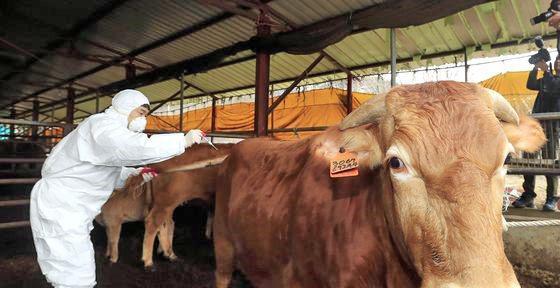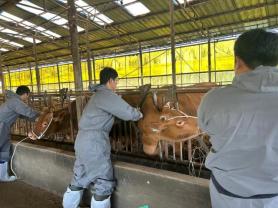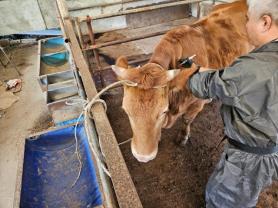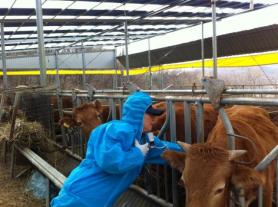
Lumpy skin disease (LSD) is a viral infection that spreads through blood-feeding insects like flies, mosquitoes, and ticks. A cow infected with the virus usually shows symptoms of high fever, skin nodules, enlarged superficial lymph nodes, and lumps measuring up to five centimeters (about two inches) on the skin. The mortality rate is less than 10 percent and the disease does not transmit to humans.
The disease normally takes place in the summer and early autumn when the temperature is high and the air is humid. While many cattle attain long-lasting immunity after recovering from LSD, some farmers vaccinate their cattle to prevent the animals from catching the disease. Since October 20, a total of 95 LSD cases were reported in South Korea.
North Gyeongsang Province said that an LSD infection case was found at a cattle farm in Gimcheon some 190 kilometers (118 miles) south of Seoul on November 14 North Gyeongsang Province is South Korea's cattle farm central with some 850,000 cattle, which accounts up to 21 percent of the total cattle capacity of the country.
According to provincial government officials, the cattle farm was immediately isolated and quarantine measures were taken to prevent the spread of the disease. The infected cow will be culled and a thorough investigation will be conducted to see if other cows are infected. Other cattle farms in the vicinity of 10 kilometers will be contained in a lockdown to stop the transport of about 180,000 cattle for four weeks.
Copyright ⓒ Aju Press All rights reserved.




